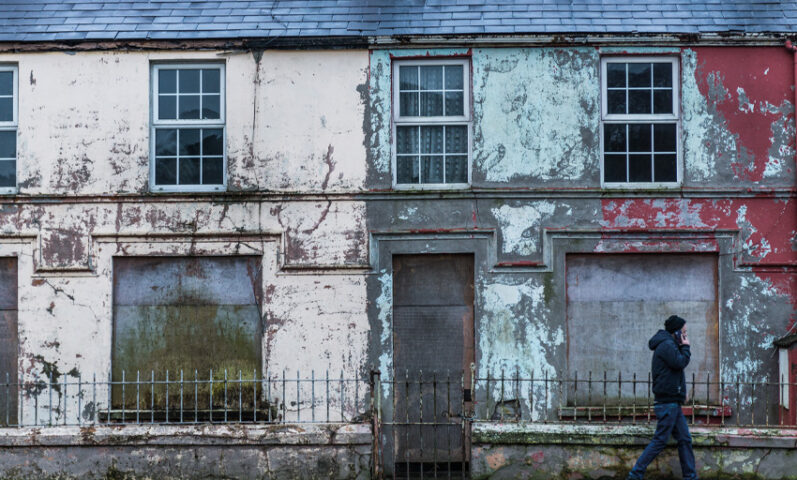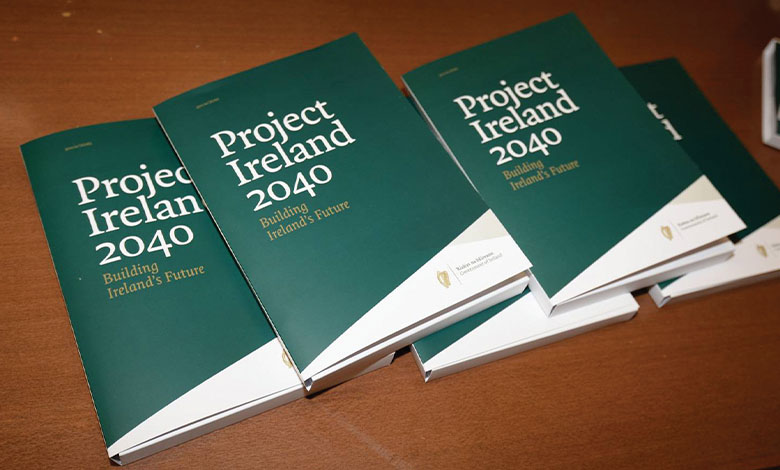
Pioneering sustainable, pre-engineering building solutions: Hapi Homes leading the way
30th October 2023
The future is bright for Oaklee Housing
30th October 2023Vacant homes: Tax exemptions expansive

The introduction of a new property tax under Budget 2024 is the latest move by the Government to try to increase the State’s housing supply and comes shortly after publication of the Vacant Homes Action Plan.
Effective from 1 November 2023, the vacant homes tax will be increased from three times to five times a property’s existing base Local Property Tax liability.
Included in Budget 2024, the new tax incorporates almost an additional 60,000 homes from the previous policy and is the latest government initiative aiming to increase the housing supply to rent or buy.
Ireland’s vacant property problem is longstanding. Census 2022 recorded over 166,000 vacant properties in the State, only a 9 per cent decrease from 2016 figures despite the scale of the housing crisis.
While properties recorded in the census do not necessarily represent long-term vacancies, the fact that over 90 per cent of vacant dwellings could be linked back to the 2016 Census, and 85 per cent back to the 2011 Census, is evidence of a failure to address the problem to date.
Criticism has been levelled that the latest tax increase is not high enough to incentivise faster resolution of vacant properties. It is estimated that the property tax on a house valued at €300,000 would be less than €1,000.
Further criticism has been aimed at the levels of exemptions that exist on properties under the new tax. Although the amount of homes the tax potentially applies to has been broadened, it is estimated that holiday homes and properties being refurbished make up around 40 per cent of recorded properties, both of which are largely exempt from the new tax.
The tax will only apply to homes that can be lived in, meaning derelict homes, for which Ireland also has a high percentage, are excluded. Additionally, any home that has been stayed in for 30 days or more in a 12-month period will not apply.
Exemptions also apply to a home that changes ownership in the 12-month period, if the property has been rented for at least 30 days, whether it is listed for rent or sale, or if the property is unoccupied due to the owner’s illness or death.
The level of exemptions has led some to suggest that administrating the new tax may eventually cost more than is gathered.
Vacant Home Action Plan
The Government’s Vacant Homes Action Plan 2023-2026, published in January 2023, outlines an ambition to return as many recoverable vacant properties back to viable use as possible, increase the supply of housing available, and revitalise the vibrancy of local communities.
One potential conundrum outlined by the Government in the Vacant Homes Action Plan is that the ownership of the property in question must be clarified when the home is being brought back into use, presenting a potential legal grey area for government.
The action plan says: “A key consideration when working to bring empty properties back into use is the reason why a particular property has been left empty. These are varied and multifaceted and can relate at a broad level to migration, urbanisation, loss of industry, and employment and at an individual property level to financial, ownership, personal, or property issues.”
The report further states: “Properties can be for sale, in between rental periods, undergoing renovation, or in some cases the owner may be in hospital or in nursing home care. A lack of investment can lead to some properties being vacant for long periods and if these properties are not addressed in a timely manner, they can ultimately become derelict. The reasons for vacancy influence the measurement of vacancy and must also be taken into account in considering measures to address vacancy.”
Rural repopulation
Given that the vast majority of Ireland’s derelict homes are situated in relatively rural counties such as Leitrim, Roscommon, and Mayo, two government strategies are of immense importance if vacant homes are to be used in a serious manner to take on the homelessness crisis. These are the National Planning Framework (NPF) and Our Rural Future.
The Vacant Homes Action Plan states that the NPF will “guide the future development of Ireland, taking into account a projected one million increase in population over 2016 levels and the need for 550,000 more homes by 2040”.
The paper continues: “The NPF growth strategy aims to shift the spatial pattern of development by concentrating a greater proportion of new development in cities, towns, and other settlements where the required services, employment, and infrastructure can be provided for citizens.”
The Government’s Our Rural Future policy addresses the challenges facing rural areas and the opportunities that it believes rural economies and communities can benefit from in the coming years.
The Vacant Homes Action Plan states that one of the key objectives of Our Rural Future is to support the regeneration, repopulation, and development of rural towns and villages to contribute to local and national economic recovery, and to enable people to live and work in a high-quality environment.
In particular, the Government has identified the role of local authorities in tackling levels of vacancy and dereliction. One of the core components of the action plan is a €150 million Urban Regeneration and Development Fund (URDF) which will enable local authorities to acquire properties or sites and carry out work to make it more attractive for reuse or sale. Proceeds received will then replenish the fund, allowing for a rolling programme.
The Government also plans to publish compulsory purchase orders by local authorities, initially focused on derelict properties, while rolling out a data collection project across all local authorities to capture the number of vacant and derelict properties. Finally, the action plan says that the Government will continue to support and develop the full-time role of a Vacant Homes Officer across local authorities.
Introducing the policy, Minister for Housing, Local Government and Heritage, Darragh O’Brien TD, said: “The most efficient home to deliver is the one which already exists and there is so much potential within our vacant stock to provide more homes for so many of our citizens.”
O’Brien added: “While significant work remains to be done, real progress is being made in addressing vacancy. Our sense of urgency remains, and we are determined to build on what we have achieved to date.”






